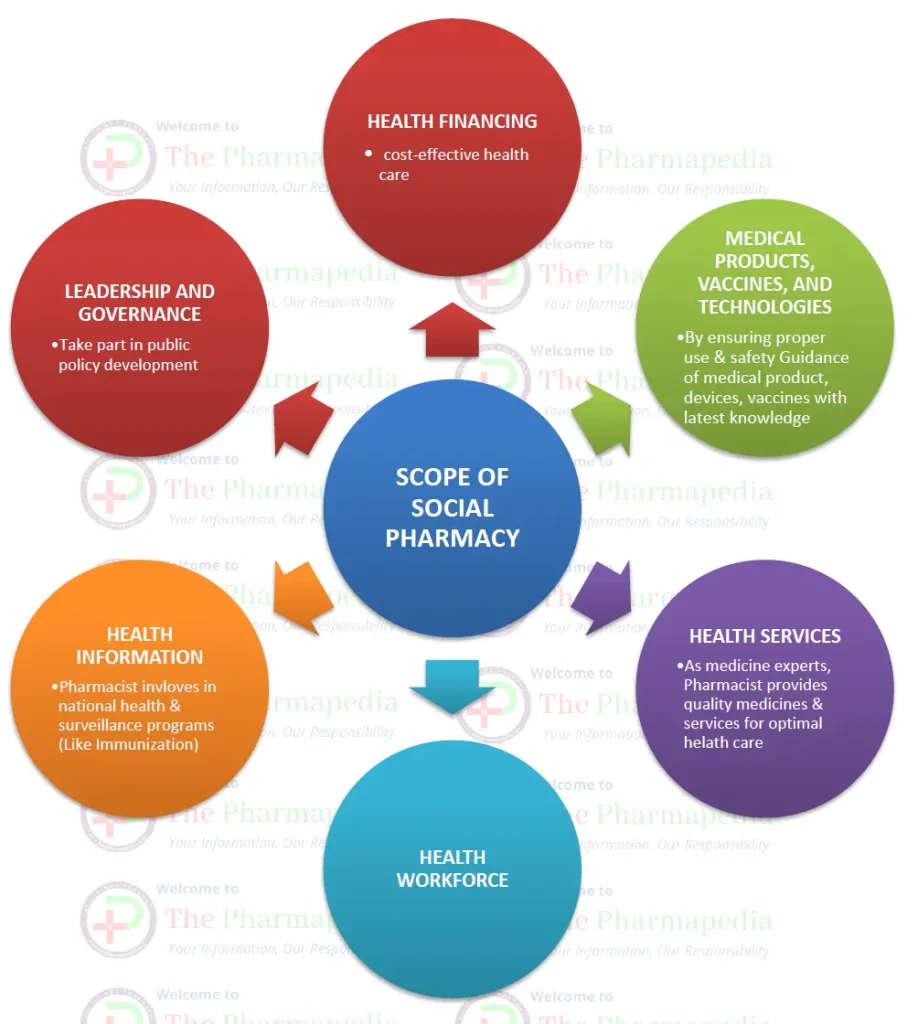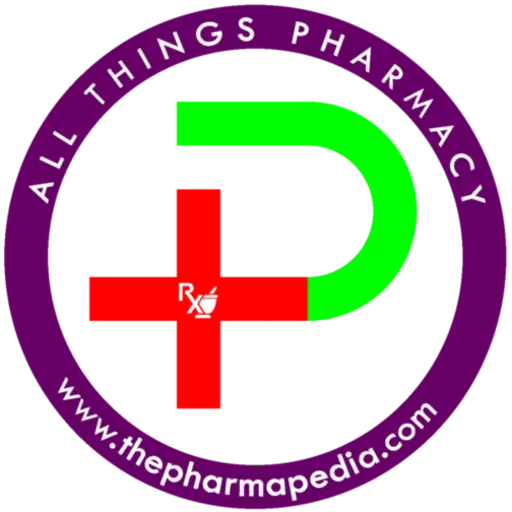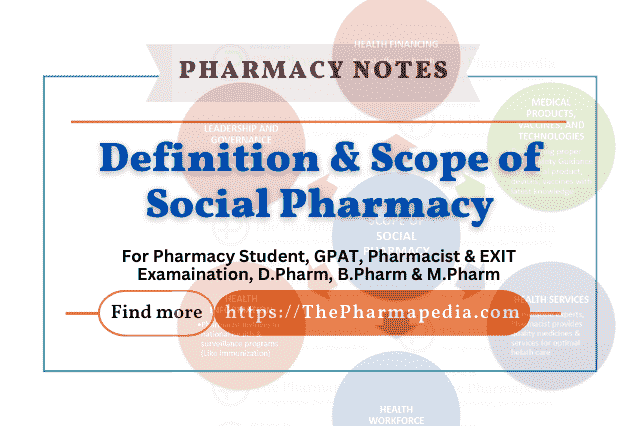Definition of Social Pharmacy:
Social Pharmacy deals with the role, provision, regulation and use of medicines in society in a scientific way. Study of social pharmacy includes the social, psycho-social, economic, and organizational aspects of medicines. सोशल फार्मेसी वैज्ञानिक तरीके से समाज में दवाओं की भूमिका, प्रावधान, विनियमन और उपयोग से संबंधित है। सामाजिक फार्मेसी के अध्ययन में दवाओं के सामाजिक, मनो-सामाजिक, आर्थिक और संगठनात्मक पहलू शामिल हैं।
or
Social pharmacy may be defined as the discipline dealing with the role of medicines from the social, scientific and humanistic perspectives.
The drug and medicine sector is studied from the social scientific and humanistic perspectives (मानवतावादी दृष्टिकोण). Social pharmacy consist of all the social factors that influence medicine use such as medicine and health related beliefs, attitudes (दृष्टिकोण), rules, relationship and processes. दवा और दवा क्षेत्र का अध्ययन सामाजिक वैज्ञानिक और मानवतावादी दृष्टिकोण से किया जाता है। सोसिअल (Social) फार्मेसी में वे सभी सामाजिक कारक शामिल हैं जो दवा के उपयोग को प्रभावित करते हैं जैसे कि दवा और स्वास्थ्य संबंधी विश्वास, दृष्टिकोण, नियम, संबंध और प्रक्रियाएं।
OR
It is an essential for our society to provide necessary medicines, as well as to avoid overuse, misuse or other forms of irrational use of medicines that can be expensive as well as dangerous for the health of the population. i.e. ensure optimal drug use in society.
Social Pharmacy combines pharmacy studies with theories and methods from the social, psychological and humanistic disciplines.
Scope of Social Pharmacy
Scope of Social Pharmacy in Improving The Public Health
After 1970 All around the world , the pharmacist’s role had expanded to include more direct interaction with the public in terms of the health information and advice on the safe and rational use of medications. To carry out these roles, pharmacists need to be well prepared on how to deal with patients’ behavior and psychology.
The concept of behavioral sciences and health psychology are the fundamental concepts in the field of social pharmacy.
That’s why many pharmacy schools around the world have adopted this subject to be part of their standard syllabus to explore the social pharmacy.

1. Health financing
In an effort to protect vulnerable populations from financial hardships, pharmacists ensure the provision of cost-effective health care through rational use of medical products and modern technologies. Majority of published studies have demonstrated the potential of pharmacists in substantially increasing health care savings across various settings, attributing such result to pharmacists’ expertise in reducing and preventing medication-related problems and in providing cheaper alternatives or suggesting medicines that are covered by insurance.
2. Medical products, vaccines, and technologies
With an increasingly wide range of new and analogous medical products, vaccines, and technologies, the complexity of pharmacy practice continues to broaden. The roles of pharmacists are not only limited to medical products, but also include vaccines and medical devices, especially those that demand special knowledge with regard to uses and risks. Pharmacists, therefore, are responsible for ensuring the efficacy, integrity, and security of medical products, devices, and, vaccines to safeguard a patient’s health.
3. Health services
As medicine experts, pharmacists hold the responsibility to deliver effective, safe, and quality medicines and services to achieve optimal health outcomes. Competency in their discipline and up-to-date knowledge, therefore, are pharmacists’ core in tailoring information and advice to their patients.
4. Health workforce
Well-performing pharmacists are responsive to patient’s needs and preferences. In fact, involving patients in the health care decision-making process has shown greater satisfaction and reduced complaints to offered services. Given the paradigm shift from a product-oriented to a patient-centered pharmacy service, putting the interests of patients and treating them with dignity is a must.
5. Health information
As one of the most-accessible health care professionals, pharmacists are involved in health screening and surveillance programs – checking immunization status and detecting potential public health hazards. With reliable and timely health information, pharmacists support the development of the public health system and collectively reduce vulnerability to public health threats.
6. Leadership and governance
Pharmacists take part in public health policy development; linking disease prevalence and drug utilization, pharmacists enable development of effective health policies, as well as they allow disease prevention to be placed within a larger context. In addition, pharmacists contribute to the emergencies in terms of designing response plans and protocols, and they contribute to resource mobilization through optimization of medication use and distribution.
Join WhatsApp channel to get latest Job notification, Study material, Previous paper, MCQ quiz, Admission alerts & News etc. for Pharmacy aspirants.
Subscribe our Telegram channel for Pharmacy Notes, MCQ Quiz, , Previous paper, Admission alerts & News etc. for Pharmacy professionals.
Join Telegram group for all Pharmacy books, Pharmacopoeia (IP, USP, BP), Pharmacy Notes, Previous Year Question papers in pdf format.










